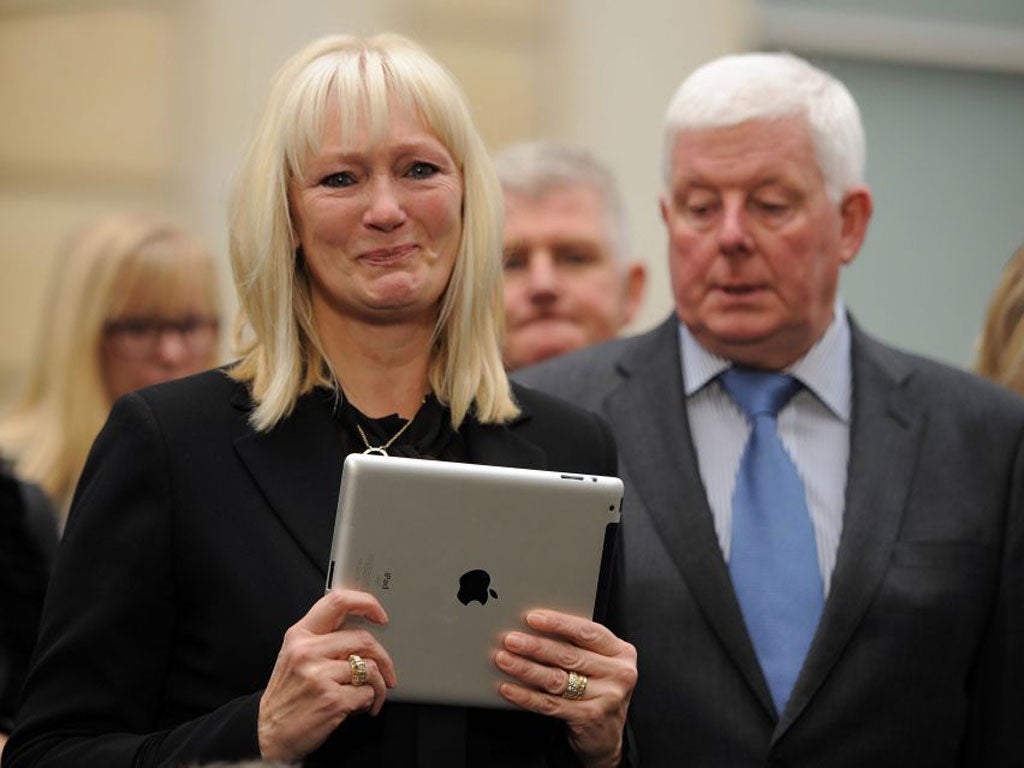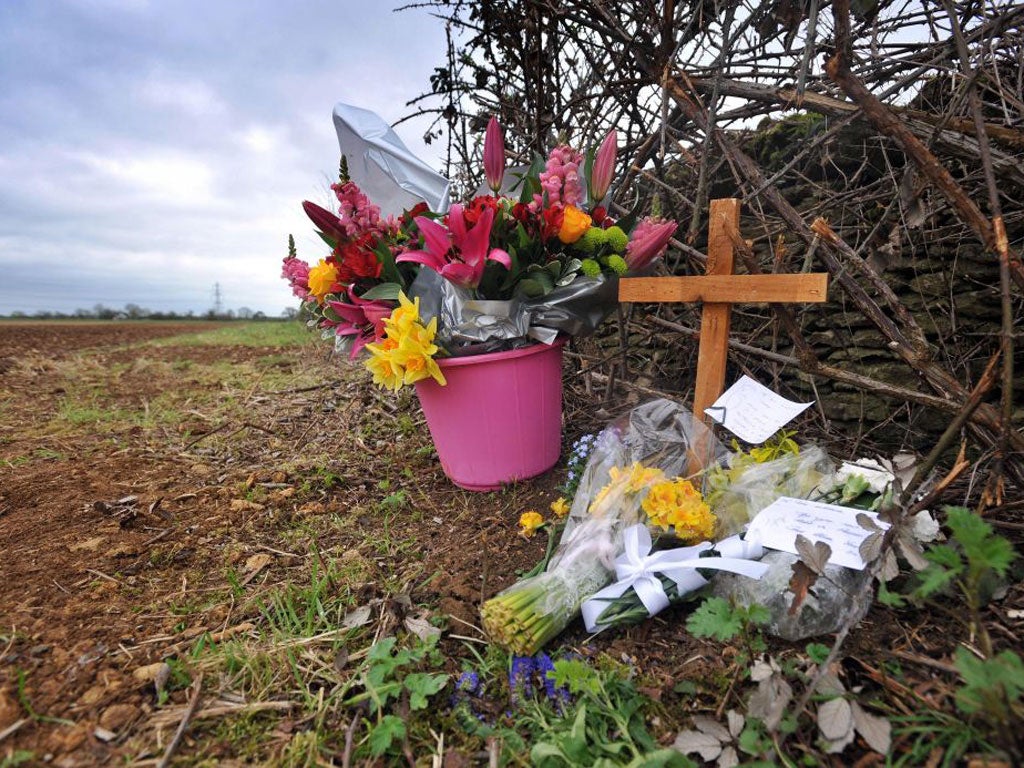
Police have apologised to the family of a woman who was murdered by a cab driver over “significant” missed opportunities to bring her killer to justice.
The Independent Office for Police Conduct (IOPC) said Wiltshire Police allowed a “fog of confusion” to develop around who was leading the murder investigation.
Becky Godden-Edwards was strangled to death by sadistic cab driver Chris Halliwell, 58, in Swindon, Wiltshire, in 2003.
The killer led a detective to her body in a field off the M5 eight years later after being arrested for the murder of office worker Sian O’Callaghan, 22.

But a judge ruled the confession to Becky’s murder breached police rules and was inadmissible, and her case was initially dropped in 2012. As a consequence, Halliwell was not brought to trial for Becky’s murder until September 2016, when a different judge ruled the confession evidence concerning Becky’s murder was admissible.
An investigation into Wiltshire Police's handling of the case by the IOPC found there were several points when a conviction could have been brought about.
The investigation found that between 2011 and 2014 the murder inquiry was poorly progressed and supervised, reasonable lines of enquiry were not pursued, and key evidence was not forensically examined.
Examples included not examining a soil sample from a spade found when Halliwell was arrested - the soil was later linked to where Becky was found. In addition, a pond in Ramsbury later identified as Halliwell’s “trophy store,” from which women’s clothing and other exhibits were retrieved, was not investigated until 2014, by which time items had degraded and lost any forensic potential.
Chief Constable Kier Pritchard faces disciplinary action over his role in the botched probe. He released a statement on Friday in light of the findings in which he said “I fully accept” the report and wanted to take the opportunity to “personally apologise” to Becky's loved ones.
“This has certainly been an opportunity for deep personal reflection for me. I acknowledge that there was confusion at the time concerning the oversight of the investigation into Becky's murder, as highlighted within the IOPC investigation,” Mr Pritchard said.
“This arose, in part, due to the major crime collaboration being in its infancy. For that, I am really sorry.
“The murder investigation was a complex case with very unique circumstances. We always strove to deliver justice for Becky's family, further to the tragic and shocking loss of their much-loved daughter.”

During the investigation between 2012 and 2014, Mr Pritchard was Head of Protective Services, as a Detective Chief Superintendent in the force.
Then-Deputy Chief Constable Mike Veale claimed in 2016 that officers had worked “tirelessly” on Becky’s case from the moment the charges were dropped in 2012. But no senior investigating officer was appointed to the case for over a year, found Det Supt Amanda Bell who led the IOPC probe.
When Det Insp Matt Davey was appointed in 2011 the “investigation failed to progress”, it was found. Mr Davey is quoted as saying he thought he was just asked to “babysit the inquiry”. The IOPC said evidence suggests Mr Davey “was placed in sole charge without appropriate resourcing, supervision or governance in place”.
Because Mr Davey and Mr Veale have both retired, neither could be found to have a case to answer for misconduct.
IOPC regional director Catrin Evans said the investigation found “serious failings” in police handling of the murder investigation. Ms Evans blamed “systemic weaknesses within the force” and individual shortcomings.

“Our sympathies go out to the family of Becky Godden for their awful loss. Mrs Edwards (her mother) has waited patiently for the outcome of the lengthy and complex investigation into her complaint that Halliwell should have brought to justice sooner for her daughter's murder,” Ms Evans said.
“Our investigation indicated that no one in Wiltshire Police took responsibility for ensuring that the murder inquiry progressed effectively.
“We have been liaising with Wiltshire Police, who have co-operated fully throughout the investigation. They have already acted on a series of recommendations to try to ensure that mistakes the force made over the accountability for, and direction of, this murder investigation are not repeated.
“The force at the time allowed a fog of confusion to develop regarding who was in command. This led to the murder investigation stalling, a lack of appropriate reviews, and obvious lines of enquiry that were potentially capable of securing Halliwell's conviction being overlooked.”
An independent review is now being set up into unsolved murders linked to Halliwell.







